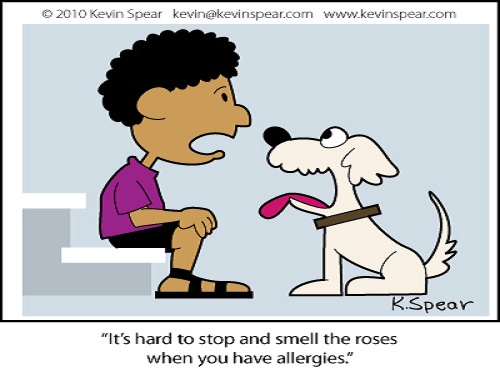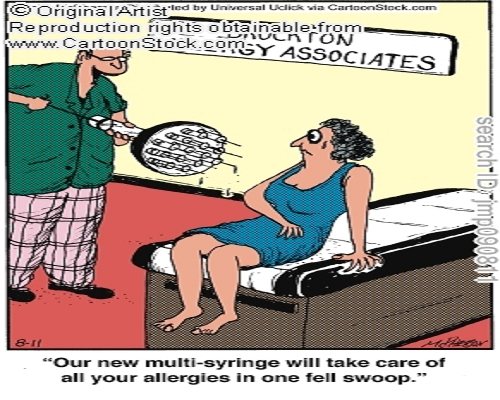Seasonal Allergies and Speech Issues
Ragweed, goldenrod, and mold – oh my! It’s fall time again, and that means that those of you with allergies will be stocking up on tissues and cleaning out the air purifiers. If your child has allergies, be on the alert for any issues that might affect his speech and language development. You might not think that seasonal allergies have anything to do with speech and language (besides a hoarse voice), but they can severely impact your child’s development.
How Allergies Affect Speech and Language
Up to half of children with a speech or voice disorder will also have allergic rhinitis and/or asthma. Both of these conditions result in the inflammation and swelling of the airways. As the nasal tissues become inflamed, they affect the voice. This often results in improper articulation. Allergies may also result in irritated vocal cords, due to frequent clearing of the throat from increased nasal drainage.
Quite often, children with severe congestion will breathe through the mouth. Young children who do this frequently may fall into the habit of having a perpetually opened mouth and protruding tongue. Unfortunately, this greatly affects the quality of speech and articulation. In severe cases, a child who does this for a prolonged period of time will gradually lose strength and tone in the oral motor muscles. This is one of the possible causes of orofacial myofunctional disorders (OMD), also called tongue thrust. OMD often results in improper articulation, especially of the “s,” “z,” “sh,” “ch,” and “j” sounds.
Impact on Hearing
Seasonal allergies can not only affect articulation and voice quality, but hearing as well. Allergies can cause congestion and ear infections. When the Eustachian tubes become clogged, children experience pain or pressure in the ears, along with a reduced ability to hear. Hearing loss from ear infections is often temporary and can be resolved with treatment. But children with allergies who frequently suffer from ear infections may experience a more severe impact on hearing.
Hearing is critical for speech and language development. If a child or infant experiences hearing loss in his early years, it interferes with his ability to begin to understand language. This affects articulation, because children with hearing loss will often not hear softer, high-frequency sounds and so they omit them or mispronounce them.
Signs That Your Child Might Have Allergies
Keep an eye out for possible signs that your child might have allergies. Some of the symptoms are obvious, like a runny nose, sneezing, coughing, and watery eyes. Other symptoms may be a bit more subtle, such as dark circles under the eyes or itchy eyes and nose. Your child might also complain that his mouth or throat feels itchy when he eats certain fruits or vegetables like melons, cucumbers, and bananas. This is called oral allergy syndrome (OAS), and it often occurs in those who are allergic to ragweed.
Since it’s difficult to tell the difference between seasonal allergies and a cold that your child picked up in school, it’s best to take him to his pediatrician for a diagnosis.
Treating Allergies
Fortunately, allergies are treatable. Your child’s pediatrician might recommend an over-the-counter medication like fexofenadine (Allegra) or ketotifen fumarate (Zaditor). An antihistamine nasal spray may also help.
In addition to treating your child’s allergies with medications, evaluate his environment. Look for ways of reducing allergens in the home. Keep the windows closed and invest in a good air purifier with a HEPA filter. Encourage your child to wash his hands immediately or bathe after playing outside.
If your child did experience a delay in speech and language development due to allergies or another cause, Speech Buddies can help him get back on track with proper articulation.





